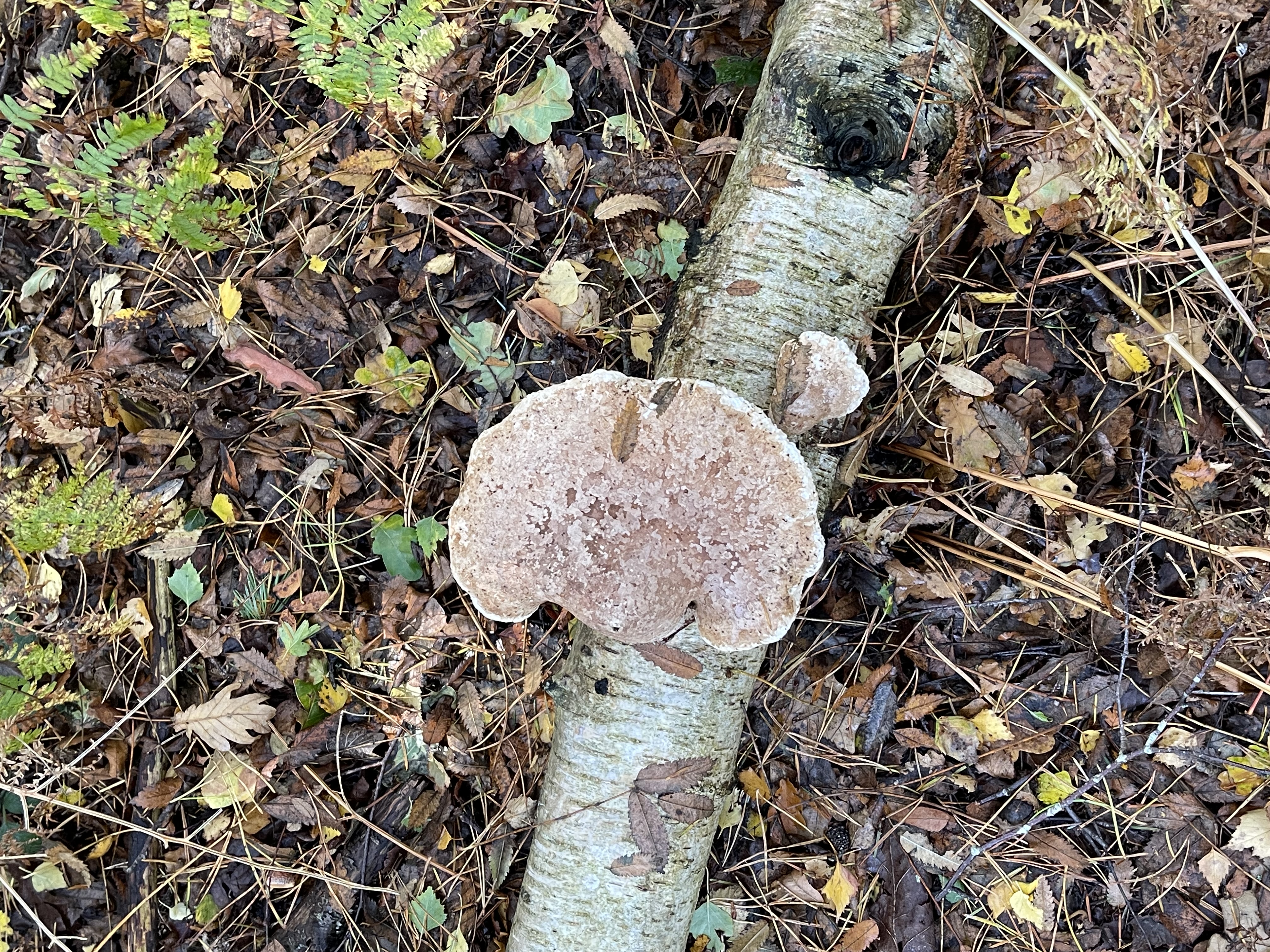Birch Polypore
Fomitopsis betulina
Identification: Fomitopsis betulina (Birch Polypore)

1 / 4
All Images (4)
Key Features
- Sessile
- hoof-shaped or kidney-shaped bracket.
- Grows exclusively on birch wood (Betula spp.).
- Upper surface pale tan to whitish
- smooth or finely velvety.
- Pore surface white/cream when young
- darkening to brown/blackish with age.
- Thick
- corky
- and tough texture.
Color:
Pale tan to whitish cap; dark brown/blackish pore surface (aged).
Smell:
No distinctive smell
Growth Pattern:
Single
Environment:
Wood
Habitat & Distribution
Habitat:
Deciduous forest, growing on dead or dying birch trees.
Distribution:
Widespread across the Northern Hemisphere, common in the UK.
Seasonality:
Year-round (perennial)
Economic Value
Market Demand:
Low - used primarily in traditional medicine and crafts.
Price Range:
N/A
Commercial Use:
Historically used as tinder, razor strops, and for medicinal teas.
Similar Species
Smoky Polypore
Bjerkandera adusta
Key Differences:
- Much thinner and flexible structure.
- Pore surface is distinctly smoky grey to black.
- Grows on various hardwoods, not restricted to birch.
Turkey Tail
Trametes versicolor
Key Differences:
- Very thin and flexible cap.
- Cap surface highly zoned with multiple colors.
- Pore surface is white with minute pores.
Recommended Action
Do not consume. This species is non-toxic but tough and generally considered inedible.